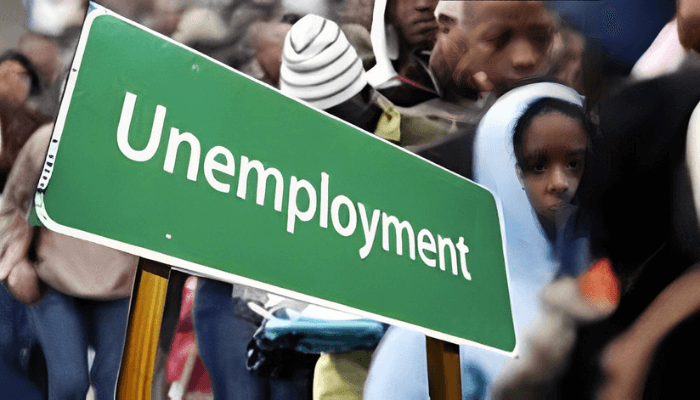The unemployment rate in Nigeria slowed to 4.3 per cent in the second quarter (Q2) of 2024 from 5.3 per cent recorded in the first quarter (Q1) of 2024.
The National Bureau of Statistics (NBS), which released the report on Monday in its Nigeria Labour Force Survey Q2 2024, disclosed that the unemployment rate stood at 5.2 per cent in urban areas and 2.8 per cent in rural regions.
It stated that the labour force participation rate in Nigeria rose to 79.5 per cent in Q2 2024.
The NBS said, “The labour force participation rate among the working-age population increased to 79.5 per cent in Q2 2024 from 77.3 per cent in Q1 2024.
“The participation rates between males and females are nearly the same, with males at 79.9.5 per cent and females at 79.1 per cent. This minimal difference suggests a balanced level of engagement across genders, indicating that gender is not a significant factor in labour participation.
“The employment-to-population ratio was 76.1 percent in Q2 2024. This is an increase of 2.9 percentage points compared to 73.2 in Q1 2024. Year-on-year comparison shows a slight decrease from Q2 2023 at 77.1 per cent.
“The combined unemployment rate and time-related underemployment as a share of the labour force population (LU2) decreased to 13 per cent in Q2 2024 from 15.3 per cent in Q1 2023.
“Informal employment remains high at 93 per cent. The unemployment rate in Q2 was 4.3 per cent.
“The unemployment rate among persons with secondary education was 7.6 percent in Q2 2024.
The unemployment rate among youth aged 15-24 years was 6.5 percent in Q2 2024.
“The unemployment rate in urban areas was 5.2 percent in Q2 2024; this is significantly higher compared to 2.8 percent in rural areas.
“Time-related underemployment in Q2 2024 came down to 9.2 percent from 10.6 percent recorded in Q1 2024, and 3.7 percent of the working-age population was in subsistence agriculture in Q2 2024.
“The percentage of youth not in education, employment, or training (NEET rate) was 12.5 percent. Similar to previous quarters, the share of females was higher than males.”
The Nigeria Labour Force Survey (NLFS) is a statistical survey designed to collect comprehensive data on employment, unemployment, and other characteristics of the population labour force.
It provides quarterly estimates of the main labour force statistics with sufficient precision at the national level.
The statistics are measured based on the labour force framework as guided by the international standard for labour market statistics for international comparability and the specific data requirements for the country.
The NBS said the main objective of the NLFS is to collect basic statistics on the labour market situation in Nigeria and make labour statistics available to support government policies and programs for effective planning and for the private sector to support investment decision-making aimed at improving the employment situation in the country.
The Labour Force Survey also serves as a tool for monitoring progress towards national goals and global commitments with an overarching goal of promoting the welfare of the Nigerian population while ensuring the availability of labour market statistics to feed into the global sustainable development goals agenda.
Labour is often one of the most important factors of production and is a major determinant of the economic system globally; therefore, it is imperative to know whether people are working or not, how long they work, and the nature of the jobs they are engaged in.
The NLFS enables key labour market statistics and the employment situation to be monitored periodically in Nigeria.
READ MORE FROM: NIGERIAN TRIBUNE
Get real-time news updates from Tribune Online! Follow us on WhatsApp for breaking news, exclusive stories and interviews, and much more.
Join our WhatsApp Channel now
